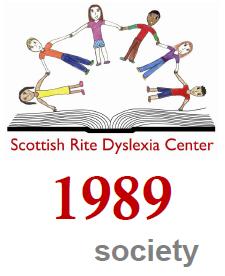About Dyslexia
Dyslexia is a specific type of learning disability that makes it difficult for the person to sound out words and to read fluently so that meaning is easily gained. Dyslexics usually have difficulty with spelling, learning new vocabulary, and getting their thoughts onto paper in a logical, concise manner. They often have good verbal skills, however. No two dyslexics are alike---each has his or her own set of strengths and weaknesses.
Dyslexia Defined
The International Dyslexia Association Research Committee and the National Institutes of Health adopted the following description of dyslexia as a working definition in April 2002. All statements within the definition have an empirical basis. The criteria specified in this definition are dynamic and subject to modification as new data become available.
Dyslexia is one of several distinct learning disabilities. It is a specific language-based disorder of constitutional origin characterized by difficulty in single word decoding, usually reflecting insufficient phonological processing abilities. These difficulties in single word decoding are often unexpected in relation to age and other cognitive and academic abilities; they are not the result of generalized developmental disability or sensory impairment. Dyslexia is manifested by variable difficulty with different forms of language, often including, in addition to problems reading, a conspicuous problem with acquiring proficiency in writing and spelling.
Contrary to what many think, dyslexia is not about reversing letters. Dyslexia is a neurological "glitch" and has nothing to do with a person's IQ. In fact, many dyslexics display insightful, impressive talents for "thinking outside of the box."
Dyslexics never outgrow dyslexia---reading and writing remain difficult throughout their life---but with specialized tutoring by a professional trained to work with dyslexics, they can manage print more effectively.
In addition to dyslexia, the state of Texas recognizes these disorders related to dyslexia:
- Developmental auditory imperception: difficulty hearing the difference in sounds in words (e.g., "I resemble that remark.")
- Dysphasia: difficulty recalling specific words.
- Developmental dysgraphia: difficulty expressing thoughts on paper and with the act of handwriting.
- Developmental spelling disorder: difficulty learning to spell.
Copyright © 2009 Scottish Rite Learning Center of Austin, Inc., All Rights Reserved | Legal




